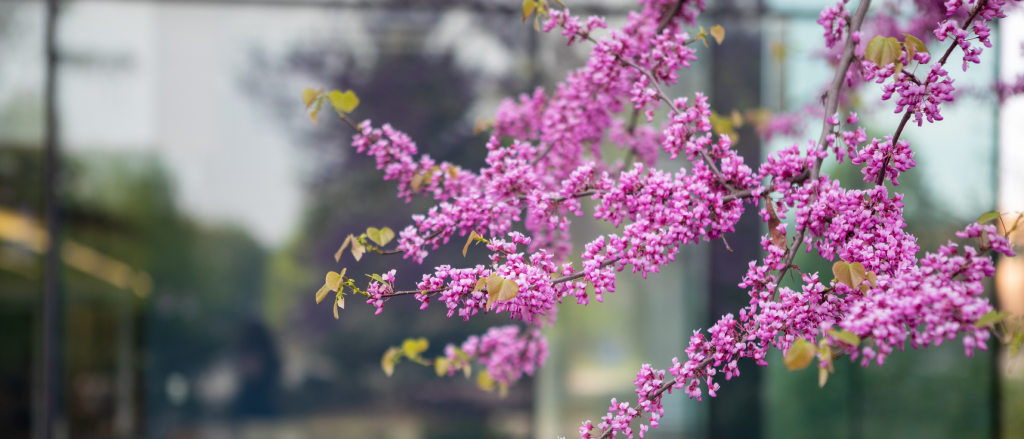Teaching, Learning and Research
Professor Altaf Arain, director of the McMaster Centre for Climate Change, established Turkey Point Observatory, with its flux
tower stations to examine the impacts of climate change and extreme weather events on forest ecosystems.
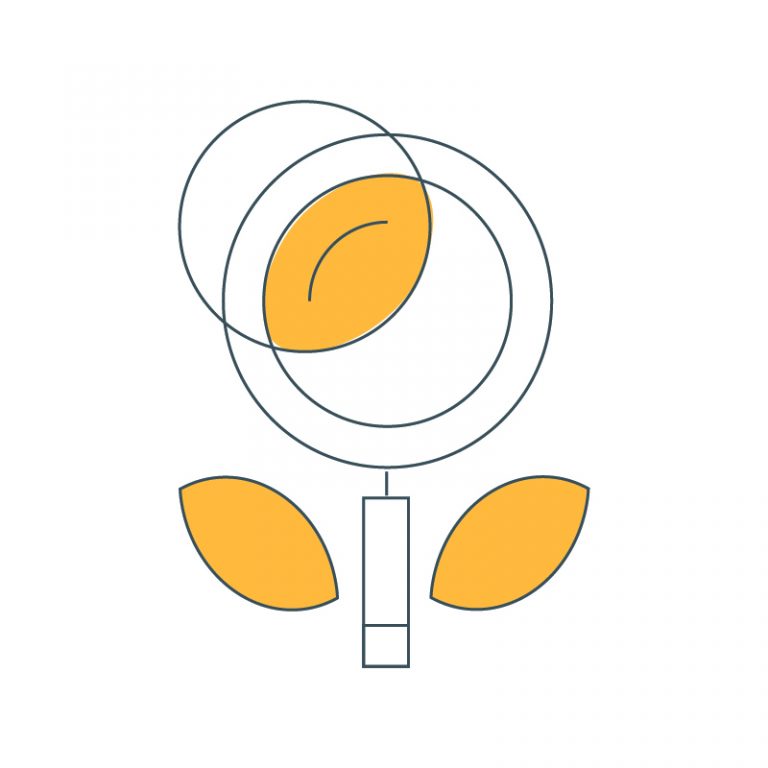
McMaster researchers are working every day to tackle the most pressing challenges facing our communities and our planet.McMaster also depends on its students to be active partners in sustainability. McMaster will support sustainable research, teaching, and learning in the following areas:
- Sustainable Research
- Interdisciplinary Learning
- Campus as a Living Laboratory
- Digital Learning and Environment
Information Box Group
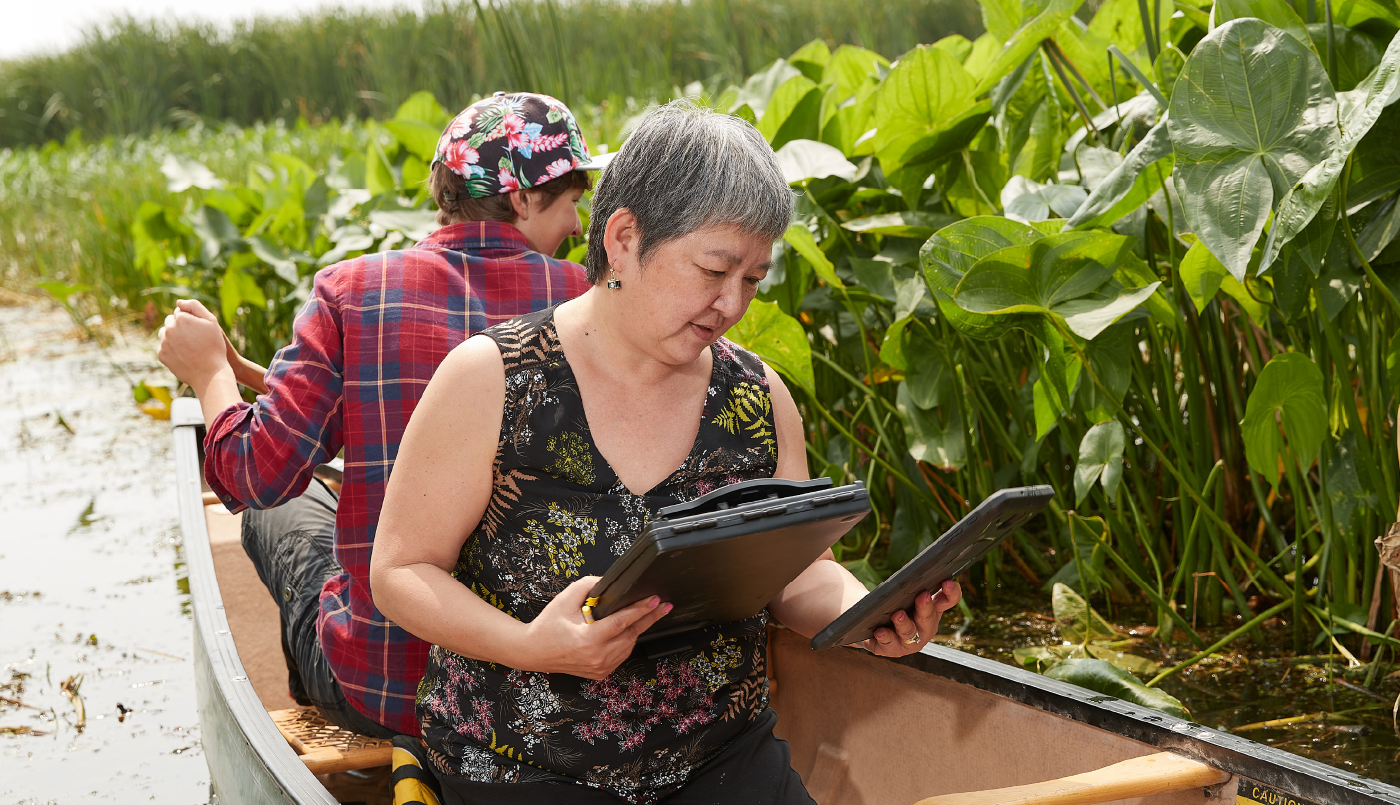
Biology professor Patricia Chow-Fraser (front), a member of McMaster’s Centre for Climate Change, conducts water quality research with a student at Long Point, Ontario.
Sustainable Research
Research at McMaster will play an important role in addressing global and local sustainability challenges. Here are some of the ways McMaster’s community, including students and faculty members, identified that sustainable research can be supported to have a positive impact:
- Provide more sustainability-related research opportunities for students and faculty.
- Increase interdisciplinary networking and collaboration to tackle sustainability-
related challenges. - Strengthen partnerships between the university’s administration and academy on
sustainability-related research that informs operational decision-making.
Interdisciplinary Learning
McMaster is dedicated to enhancing its students’ ability to drive real, sustainable change through experience-based and interdisciplinary learning. McMaster community members identified the following ways the university could provide the kind of learning opportunities that will inspire the sustainability leaders of tomorrow:
- Bolster and integrate curricular, co-curricular, and extra-curricular opportunities related to sustainability.
- Increase experiential learning that exists within the surrounding community.
- Build shared resources for experiential learning opportunities.
Information Box Group
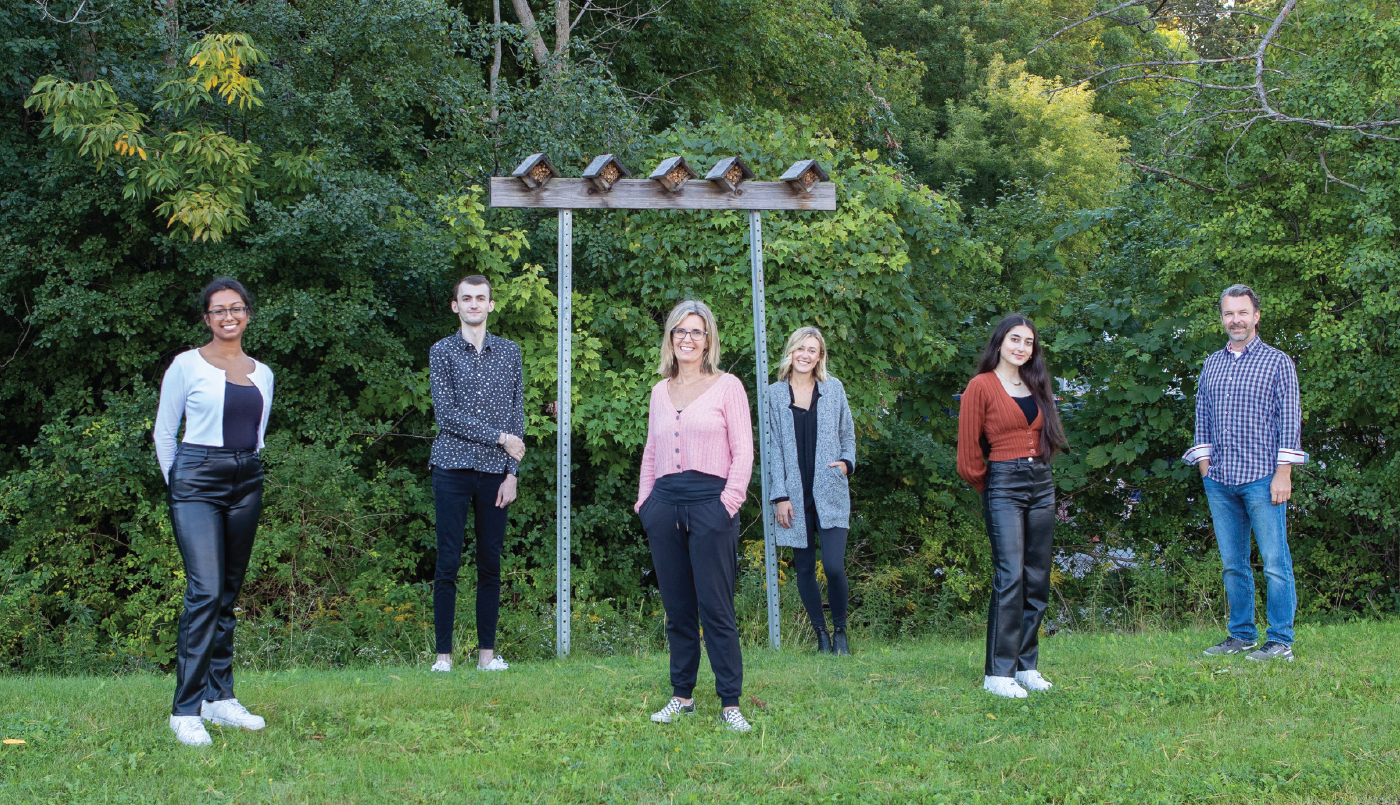
Academic Sustainability Program students from the Solitary Bee Project and Facility Services leaders with five of the 75 bee homes installed on campus. From left: Samara Hasan, Science student; Callum Hales, Business student; Debbie Martin, Assistant Vice-President and Chief Facilities Officer; Abbie Little, Community Relations Coordinator; Waslat Waizi, Science student; and Craig MacDonald, Director of Maintenance Services.
Campus as a Living Laboratory
McMaster is continuing its commitment to creating a living laboratory where students, faculty, and staff from across campus come together to solve problems, innovate and promote sustainability. To do so, McMaster will:
- Invite all university community members to think of campus as a place to pilot new sustainability-related ideas and projects.
- Explore opportunities to share research project concepts and streamline approvals.
- Support and resource more innovative, sustainability-related student-led ideas and collaborative projects.
Digital Learning and Environment
McMaster recognizes how online and virtual classrooms have changed the teaching and learning environment for everyone. In alignment with McMaster’s Teaching and Learning Strategy, the university will:
- Integrate a lens of sustainability into digital learning tools and strategies.
- Support opportunities for sustainable learning and research through the use of digital tools and infrastructure.

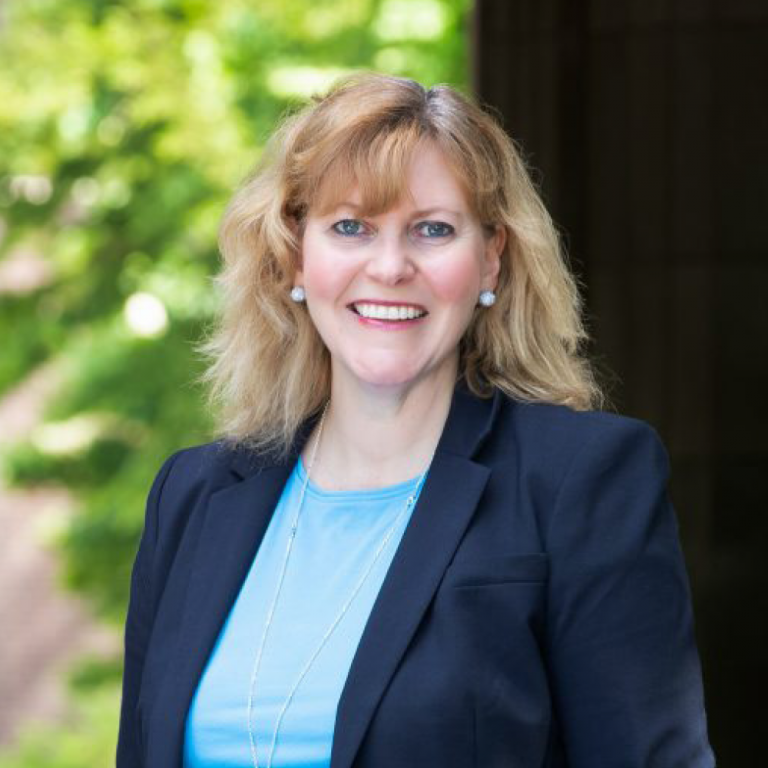
A Message from Susan Tighe, provost & Vice-President (Academic)
McMaster is ranked among the top 80 universities globally because of our dedication to collaborative, impactful research and world-class teaching and learning.
McMaster’s Teaching and Learning Strategy aligns with many aspects of our first university-wide Sustainability Strategy. Both reference the importance of partnering with students, interdisciplinary learning, leveraging digital environments, and inclusivity.



